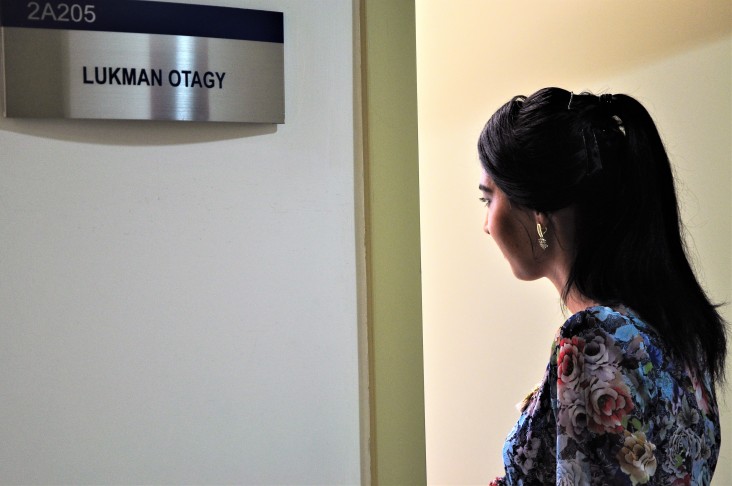Speeches Shim

Across the globe, many tuberculosis (TB) patients who start treatment, do not complete the course. This has given rise to multidrug-resistant TB (MDR-TB), a form of TB infection caused by bacteria resistant to at least two first-line anti-TB medications, which is very difficult and expensive to treat.
In Turkmenistan, the USAID-funded Improved Prevention, Detection and Treatment of Drug-Resistant Tuberculosis in Central Asia activity is working to support the Turkmenistan National Tuberculosis Program in scaling up prevention, detection, and treatment of drug-resistant tuberculosis.
Just over three years ago, Maral from Ashgabat, the capital of Turkmenistan, began to feel unwell. She thought she was coming down with the flu, but rather than go to a doctor, she thought she would ride it out, and she self-medicated with painkillers and decongestants. However, two years passed, and she did not feel well again.
Later, Maral developed a pain on the left side of her chest, she thought she might have heart problems. Again, she self-medicated, this time with aspirin, without seeking medical advice. When she developed a dry cough, she assumed allergies were to blame and added allergy medication to her own treatment. She lost months and years of precious time, as is often the case with many unsuspecting victims of TB.
After suffering for two long years, she visited a doctor who immediately knew something was seriously wrong – Maral had lost a lot of weight – that is when she was finally diagnosed with TB. “My mistake did not end there,” says Maral, “Even after I knew what was wrong, I refused to believe the diagnosis and begin treatment.”
She kept refusing treatment for several months, and it nearly cost her life. When she was finally rushed to the hospital, she only weighed 42 kilograms and she had lost a lot of blood. Her TB caused her to cough up blood. “I couldn’t eat or drink for a long time, and I didn’t even have the energy to stand up,” she says.
She has now been on treatment for a year and has six months to go. She is determined to complete her entire treatment regime. “Despite the fact that I was admitted to the hospital in dire conditions, the treatment I am receiving worked. I believe I will recover fully from the illness and then, will return to my regular job as a tailor and will make dresses for my customers,” says Maral.
Now Maral can reflect on the choices she made and is adamant that others should not make the same mistakes she did. “Don’t waste precious time, seek help as soon as you can,” she says, “Get on treatment as soon as possible, trust your doctor, and you will be cured.”
With USAID’s introduction of new drugs and regimens recommended by the World Health Organization, and improved knowledge among TB doctors on the management of drug-resistant TB, many more patients are now being cured and are returning to their normal lives, a rarity in the past.
Since 2014, 713 MDR-TB patients have been cured in Turkmenistan. The USAID-funded Improved Prevention, Detection and Treatment of Drug-Resistant Tuberculosis in Central Asia activity provides technical assistance to Turkmenistan’s National TB Program to significantly scale up the prevention, detection, and treatment of drug-resistant tuberculosis through trainings, updating clinical protocols, developing guidelines, strengthening the health system’s functioning and investing in research and innovation.

Comment
Make a general inquiry or suggest an improvement.